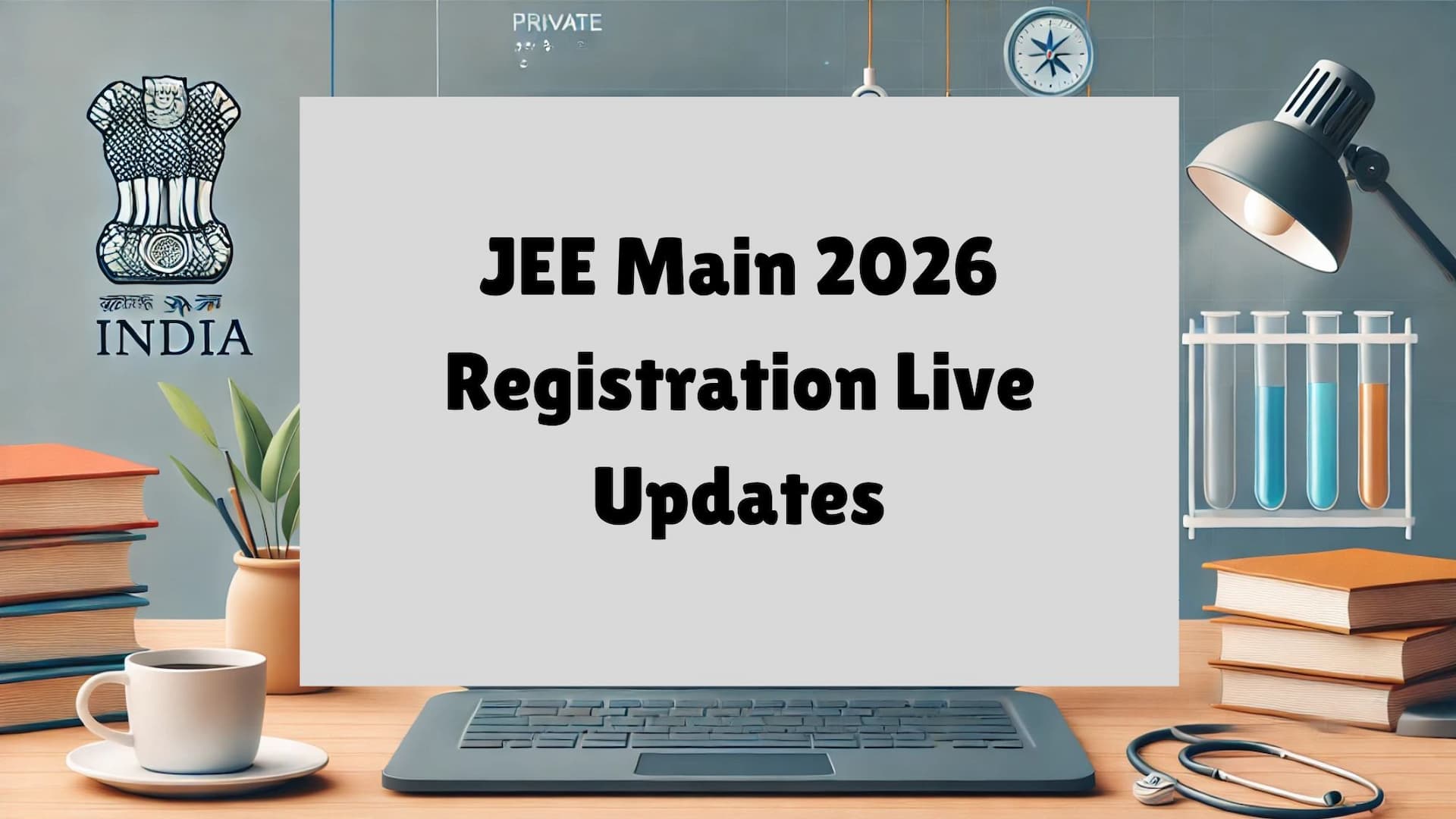JEE Main 2026 Registration Soon: Everything Engineering Aspirants Need to Know
The National Testing Agency (NTA) is all set to commence the registration process for the Joint Entrance Examination (JEE Main 2026). This exam is a critical gateway for admission into premier engineering institutions across India, including the NITs, IIITs, and other Centrally Funded Technical Institutions (CFTIs), and serves as the eligibility test for JEE Advanced (for IIT admissions). Engineering aspirants must stay updated and prepare for the application process on the official website: jeemain.nta.nic.in.

The National Testing Agency (NTA) is all set to commence the registration process for the Joint Entrance Examination (JEE Main 2026). This exam is a critical gateway for admission into premier engineering institutions across India, including the NITs, IIITs, and other Centrally Funded Technical Institutions (CFTIs), and serves as the eligibility test for JEE Advanced (for IIT admissions). Engineering aspirants must stay updated and prepare for the application process on the official website: jeemain.nta.nic.in.
Important Dates and Session Schedule
JEE Main 2026 will be conducted in two sessions, providing candidates with two opportunities to achieve their best score. The final result will be based on the best NTA Score obtained by the candidate across the two sessions.
| Event | Session 1 (January) Tentative Dates | Session 2 (April) Tentative Dates |
|---|---|---|
| Online Registration Starts | October 2025 | Last week of January 2026 |
| Online Registration Closes | November/December 2025 | February/March 2026 |
| Exam Date | January 21 to January 30, 2026 | April 1 to April 10, 2026 |
| Result Declaration | February 2026 | April 2026 |
Note for Aspirants: Candidates must register and pay the application fee for Session 1 separately. Registration for Session 2 will reopen after the completion of Session 1. The application fee is expected to be ₹1000 for General/Gen-EWS/OBC male candidates and ₹800 for General/Gen-EWS/OBC female candidates, with a reduced fee for SC/ST/PwD categories.
Eligibility Criteria and Documents Required
To be eligible for JEE Main 2026, candidates must meet the following criteria:
- Qualifying Examination: Candidates must have passed the Class 12/equivalent examination in 2024 or 2025, or be appearing in 2026.
- Age Limit: There is no age limit for appearing in the JEE Main examination.
- Required Subjects:
- B.E./B.Tech.: Passed with Physics and Mathematics as compulsory subjects along with one of Chemistry/Biotechnology/Biology/Technical Vocational Subject.
- B.Arch.: Passed with Mathematics, Physics, and Chemistry.
- B.Planning: Passed with Mathematics.
While there is no minimum percentage requirement to appear for JEE Main, candidates must secure at least 75% aggregate marks in the Class 12 examination (or be in the top 20 percentile) to be eligible for admission to NITs, IIITs, and CFTIs. The minimum requirement is 65% for SC/ST candidates.
For Registration, Prepare These Documents: A recent passport-size colour photograph, scanned signature, and category/PwD certificate (if applicable). NTA will use Aadhaar authentication to auto-fetch basic details like name, date of birth, gender, photograph, and address, making it crucial for candidates to ensure their Aadhaar details are correct and match their Class 10 certificate.
Exam Pattern and Key Updates
The examination will be conducted as a Computer-Based Test (CBT) in a multitude of cities across India.
- Exam Structure (Paper 1 - B.E./B.Tech.): The paper will consist of 90 questions (30 each from Physics, Chemistry, and Mathematics). Each subject will have two sections: Section A (20 Multiple Choice Questions/MCQs) and Section B (10 Numerical Value Questions, out of which candidates must attempt 5).
- Marking Scheme: +4 marks for every correct answer and -1 mark for every incorrect MCQ answer. There is no negative marking for the Numerical Value Questions (Section B).
- Syllabus: The syllabus is based on the Class 11 and 12 NCERT curriculum. Aspirants are advised to use NCERT as a foundation but practice higher-level problems for a competitive edge.
The NTA will be increasing the number of examination cities this year for better accessibility. Aspirants are strongly advised to fill out the application form carefully and accurately to avoid rejection during document verification.
For regular updates follow Only Education News. For more details on management entrance exams and courses, check here: Engineering Exams List.
